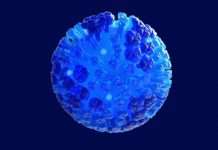May 29 (UPI) — As the worldwide death toll from the novel coronavirus continues to rise, scientists across the globe are racing to find a vaccine.
It often takes years to secure funding, research and develop a vaccine candidate, test it on humans and get regulatory approval. And that’s all before pharmaceutical companies can begin the task of actually manufacturing millions of doses for distribution.
A New York Times analysis indicates that under a normal timeline, a COVID-19 vaccine wouldn’t be ready for distribution until May 2036.
But with more than 360,000 people dead worldwide, according to a Johns Hopkins University tracker, and the global economy struggling under mitigation efforts, world leaders are eager to speed up the process.
U.S. President Donald Trump in May announced Operation Warp Speed, an effort to shorten the time frame in which a vaccine goes from concept to distribution. He’s called for a vaccine to be available for use within about 18 months, a goal some experts warn is too optimistic. With more than 100 vaccine trials underway, scientists are hoping at least one will prove effective and safe enough to hit that 18-month goal. Here are a handful of the more notable research efforts underway:
BioNTech and Pfizer
Pfizer partnered with German company BioNTech in early May to administer a vaccine candidate known as BNT162 on human test subjects. Tests were carried out at New York University, the University of Maryland and Cincinnati Children’s Hospital as part of a Phase I/II clinical trial.
The initial trial is designed to determine the safety, immunogenicity and optimal dose level of four versions of Pfizer’s vaccine candidate, which uses “messenger DNA” to spur the body to produce antibodies that fight the coronavirus.
The companies have yet to report results. They aid they’re preparing a large-scale rollout that will produce millions of vaccine doses this year and hundreds of millions next year.
CanSino Biologics and China’s Institute of Biotechnology
This Ad5-nCoV vaccine candidate produced in China was the first to be tested in humans — a study of which found that it appears to be safe and able to generate an immune response against COVID-19.
It uses a weakened common cold virus, adenovirus, which infects human cells but is incapable of causing disease, to deliver genetic material that codes for the SARS-CoV-2 spike protein to the cells. They then produce the spike protein and allow the immune system to create antibodies to fight the coronavirus.
A study, released May 22, found that low, medium and high doses of the vaccine produced some level of both COVID-19 antibodies and T-cell response.
The vaccine will need to pass through Phase II and Phase III clinical trials in humans with similar positive results before widespread use.
Moderna and NIAID
Moderna said on May 18 that a Phase I trial of its mRNa-1273 possible vaccine indicated a “potential to prevent” COVID-19. The vaccine succeeded in producing antibodies to attack the virus in all 45 test subjects in quantities “of the magnitude caused by natural infection.”
Moderna is conducting the trial in partnership with the U.S. National Institute of Allergy and Infectious Diseases at the National Institutes of Health.
U.S. regulators cleared mRNA-1273 for a second phase earlier this month, which officials said should begin “shortly.”
Moderna’s Phase I results announcements caused stocks to soar after a tumultuous two months in the markets.
Oxford University and AstraZeneca
Oxford Vaccine Group and the Jenner Institute have entered Phase I/II human trials for their potential vaccine AZD1222. Researchers are enrolling volunteers to test the vaccine, which is made from a weakened version of the adenovirus.
In May, Oxford announced it received more than $1 billion from the Biomedical Advanced Research and Development Authority, a branch of the U.S. Department of Health and Human Services. The British government has also supplied $79 million for the AstraZeneca/Oxford collaboration.
AstraZeneca plans at least 400 million doses and has lined up manufacturing capacity for 1 billion doses with first deliveries set for September.
Sinovac Biotech
Chinese biopharmaceutical company Sinovac Biotech began Phase II clinical trials of its CoronaVac vaccine candidate in May. The study is evaluating the immunogenicity and safety of the potential vaccine in a larger population.
In preclinical studies in macaque monkeys, the inactivated vaccine proved to be safe and provide immunity.
The company is constructing its own production plant to manufacture up to 100 million doses of the vaccine each year.
Sinovac received $15 million on May 22 to accelerate the development of CoronaVac.
Johnson & Johnson
In late March, Johnson & Johnson said it identified a lead candidate for development for a vaccine and planned to start human testing in September. The company also identified two backup options.
It plans to use funding from the federal Biomedical Advanced Research and Development Authority to scale up manufacturing with the goal of producing more than 1 billion doses.
Johnson & Johnson plans to collaborate with Emergent BioSolution to manufacture the vaccine.
Sanofi and GlaxoSmithKline
French pharmaceutical giant Sanofi and GlaxoSmithKline partnered together in April to create an adjuvanted vaccine, a type of vaccine that requires a smaller amount of vaccine protein per dose, allowing more doses to be produced more quickly.
Sanofi paired its S-protein COVID-19 antigen — based on recombinant DNA technology — with GSK’s adjuvant technology to create the vaccine candidate.
This vaccine is in the pre-clinical phase, but GSK announced May 28 that it plans to make 1 billion doses of a vaccine adjuvant system through 2021.
Merck and IAVI
This vaccine candidate, now in pre-clinical studies, is being designed and engineered by International AIDS Vaccine Initiative scientists. Merck will manage its regulatory approval process. It uses the same recombinant viral vectoring, or rVSV, technology as Merck’s successful Ebola Zaire virus vaccine, Ervebo.
Merck is also working on two other vaccines — one with biotechnology company Themis and another with Ridgeback Biotherapeutics.
Novavax
U.S. biotechnology company Novavax said Monday it’s entered clinical trials for a potential vaccine called NVX‑CoV2373. Researchers began a combined Phase I/II preliminary immunogenicity and safety trial.
Novavax said NVX‑CoV2373 demonstrated “high immunogenicity and high levels of neutralizing antibodies” during pre-clinical tests and showed “strong evidence” it will be effective in fighting COVID‑19 in humans.







